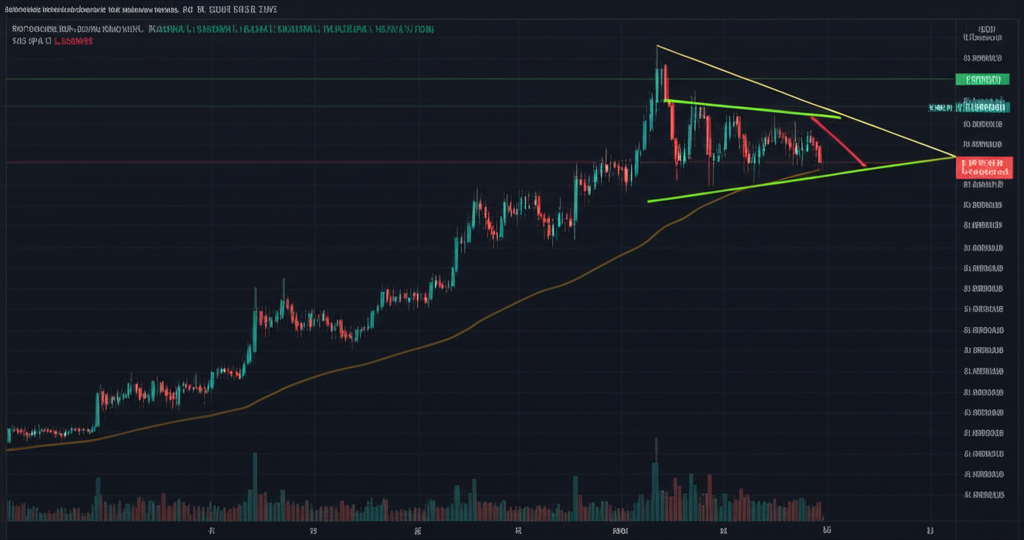The UK government has announced a significant tightening of regulations around cryptocurrency trading, introducing harsher penalties for individuals and firms that fail to comply. This crackdown, set to roll out over the coming months, aims to strengthen investor protections and combat illicit activities in the rapidly growing digital asset market.
Escalating Penalties and Enforcement Measures
At the heart of the new regulatory framework is a substantial increase in fines for serious breaches of compliance measures. Fines can now exceed £1 million, signaling the government’s intent to impose severe financial consequences on those who flout the rules. This measure is designed not only as a deterrent but also as a means to emphasize the importance of adhering to regulatory standards in a market that has often operated with loose oversight.
In addition to financial penalties, the government is mandating that crypto exchanges strengthen their existing protocols. This includes implementing more rigorous Know Your Customer (KYC) and Anti-Money Laundering (AML) procedures aimed at preventing illicit activities such as money laundering, fraud, and terrorist financing. These enhanced compliance requirements will necessitate significant operational changes for many exchanges, particularly smaller platforms that may have previously had minimal scrutiny.
Expanded Powers for the Financial Conduct Authority
The Financial Conduct Authority (FCA), the UK’s leading financial regulator, will be granted expanded powers to monitor and enforce compliance across the crypto ecosystem. These powers include the ability to conduct surprise inspections of cryptocurrency firms, a proactive approach intended to catch non-compliance before it escalates. The FCA’s increased authority will enable more decisive intervention and quicker responses to regulatory breaches.
Sarah Montgomery, a senior official at the FCA, highlighted the significance of these developments: “This move sends a clear message that the UK takes digital asset regulation seriously. Our priority is protecting consumers and ensuring market integrity.”
The regulatory agency’s bolstered role indicates a shift from reactive rule enforcement toward a more preventative and supervisory stance, reflecting the evolving complexity and risks inherent in the crypto sector.
Non-Compliance Prevalence Among UK Crypto Traders
Despite growing awareness and regulatory efforts, an estimated 40% of UK-based crypto traders currently operate without formal registration or oversight. This significant proportion reflects the challenges regulators face in keeping pace with a decentralized industry that is often opaque and technologically complex.
The lack of formal registration exposes consumers to higher risks, as these traders may not uphold adequate security or adhere to industry best practices. This large unregulated market segment has also contributed to increased vulnerabilities, including scams and fraudulent activities, which have eroded some consumer trust in the crypto market.
Industry Reaction and Challenges Ahead
James Lloyd, CEO of a leading crypto exchange, acknowledged the potential challenges these new regulations pose to traders but emphasized the benefits they aim to bring: “Some traders may find these changes challenging, but maintaining trust and transparency in the crypto ecosystem is crucial.”
Industry leaders recognize that while compliance may introduce operational burdens, the move towards clearer regulation is expected to foster a healthier and more sustainable market environment. By setting higher standards, the UK aims to position itself as a leading jurisdiction for secure crypto trading.
International Collaboration and Unified Regulatory Approaches
A notable component of the government’s strategy involves working closely with international regulators to form a unified approach to crypto regulation. Given the inherently global nature of cryptocurrencies, a fragmented regulatory landscape is less effective in combating illicit activities and protecting investors.
This international collaboration aims to align standards, share intelligence, and coordinate enforcement actions across borders – efforts that could diminish regulatory arbitrage where traders exploit gaps between jurisdictions. Such partnerships also open pathways for more cohesive policy frameworks that can better respond to future innovations within the digital asset space.
Background Context: Regulatory Struggles and Industry Growth
The UK’s journey toward effective cryptocurrency regulation has been marked by notable hurdles. The volatility of crypto assets, coupled with their decentralized architecture, has complicated attempts at oversight. While the sector’s rapid growth offers significant economic opportunities, it has also attracted bad actors exploiting regulatory gaps.
Past efforts by UK authorities faced criticism for being too lax or fragmented, leaving consumers vulnerable to scams and leaving the market open to major fraud cases. The current crackdown reflects an acknowledgment that previous regulatory approaches were insufficient to manage the risks associated with digital assets.
Looking Ahead: Setting Global Standards and Encouraging Adoption
The ongoing integration of these stringent regulatory measures could position the UK as a model for crypto governance worldwide. By establishing clear, enforceable rules founded on consumer protection and market integrity, the UK government hopes to influence other nations to adopt similar or complementary frameworks.
Experts suggest that such regulatory clarity is a prerequisite for mainstream adoption of cryptocurrencies within traditional financial systems. As regulatory risks diminish and investor protections improve, institutional and retail participation is expected to increase, potentially leading to broader acceptance of digital assets in everyday finance.
Ultimately, the UK’s enhanced crackdown marks a pivotal moment in the evolution of cryptocurrency regulation and could reshape the landscape of digital finance for years to come.




